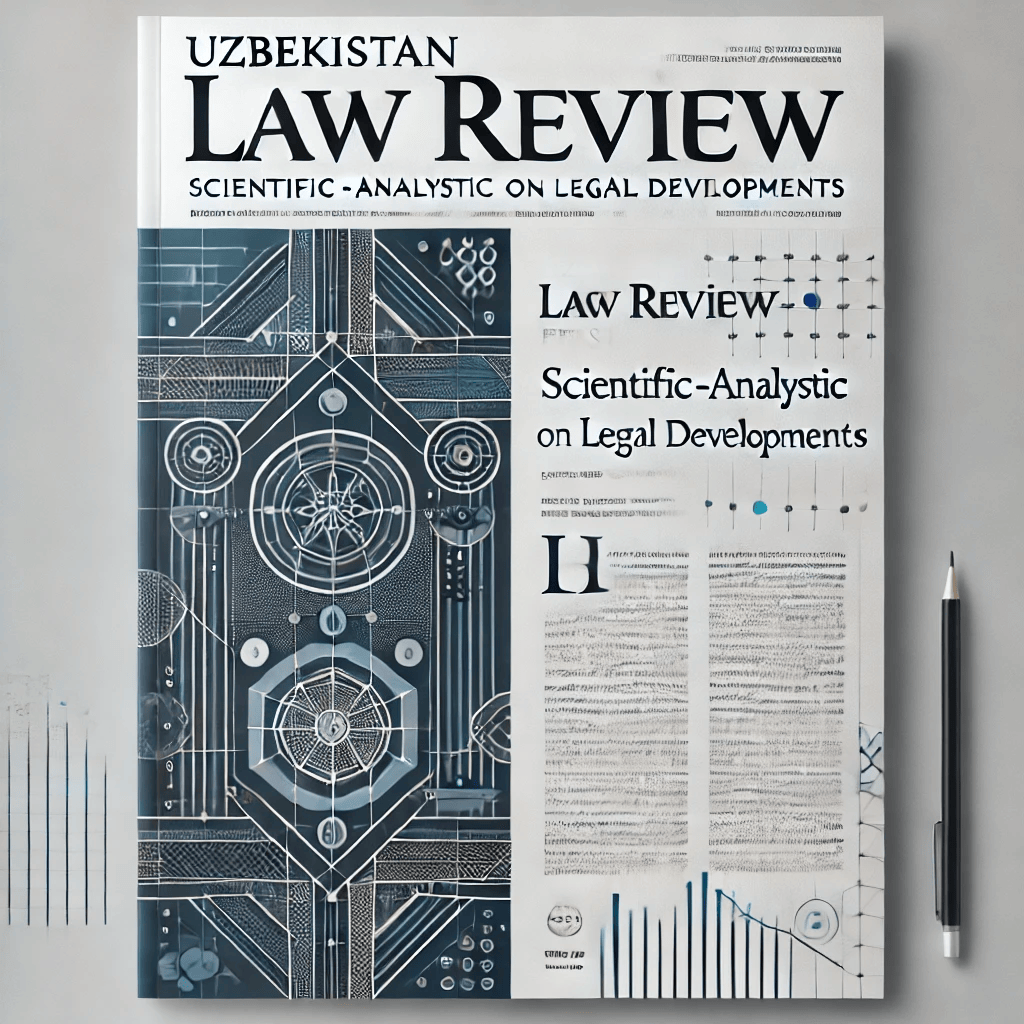УКРЕПЛЕНИЕ В СЕМЬЕ ЛИЧНЫХ И ИМУЩЕСТВЕННЫХ ПРАВ ОБЯЗАННОСТЕЙ СУПРУГОВ НА ОСНОВЕ ПРИНЦИПА РАВЕНСТВА
Keywords:
concept of equality of spouses, rights and duties of parents, personal property rights of minors, the child’s right to live and be raised in a family, the child’s right to meet with parents and other relatives, the child’s right to protection, the child’s right to express their opinion, the child’s right to a name, patronymic, and surname, the right to change the child’s name and surnameAbstract
In our society, men and women have equal rights in family relationships. This principle is fully implemented and materially supported. Spouses jointly decide all issues related to their personal rights that are not connected to property rights. They are equal in all personal rights within the family.
The Law of the Republic of Uzbekistan "On Guarantees of Equal Rights and Opportunities for Women and Men," adopted on September 2, 2019, as a form of legal protection and guarantee aimed at improving the status of women in society, is one of the key documents prioritizing human interests.
However, the majority of family disputes between men and women are related to the non-recognition of women's rights, including cases where women's rights and opportunities are not given sufficient importance in family relationships.
The Greek scholar Antiphon expressed the idea of gender equality in his works: "Nature created everyone equal: men and women, but people create laws that make them unequal." Abu Nasr al-Farabi, in his work "The Virtuous City," described a state where equality prevails as a state striving for virtue. In modern society, the foundations of gender inequality are ingrained from an early age:
Girls are raised from childhood to fulfill traditional female roles, instilled with ideals of modesty, obedience, and passivity;
Outdated views on gender equality in both family and social life persist;
Women are not fully integrated from family life into public life;
Men hold a dominant position in the family due to their significant contribution to the household budget;
There is inequality in the distribution of household responsibilities;
Men can enter into a second (religious) marriage without divorcing the first, and so on.
For this reason, the regulation of personal and property relations within the family remains a pressing issue. The extent to which the principle of equality between spouses is regulated is fundamental to addressing this issue.
Materials and Methods: Comparative analysis, theoretical modeling, induction, and generalization methods were used in the scientific, theoretical, and practical analysis of the principle of equality of personal and property rights and obligations of spouses in the family.
Research Results: The article provides a comprehensive analysis of the scientific and practical issues related to the principle of equality of personal and property rights of spouses within the current legal framework. Identifying solutions is an important theoretical and practical scientific task aimed at improving the relevant section of civil and family law.
Conclusion: The issues of implementing personal and property rights of spouses in the family based on the principle of equality have been developed, along with proposals for amendments and additions to the Family Code and related legal documents on this matter.
Downloads
References
1. O‘zbekiston Respublikasi Konstitutsiyasi. (Qonunchilik ma’lumotlari milliy bazasi, 01.05.2023 y., 03/23/837/0241-son) http://www.oef.org.ee/_repository/File/Lhisuhtevgivald%20venekeelne%202007.pdf
2. O‘zbekiston Respublikasi Oliy Kengashining 1992 yil 9 dekabrdagi “Bola huquqlari to‘g‘risidagi konvensiyaga qo‘shilish haqida”gi 757-XII-sonli qarori [Elektron resurs]: http://www.lex.uz.
3. O‘zbekiston Respublikasi Prezidentining 2021 yil 9 avgustdagi «Bola huquqlarining kafolatlarini ta’minlash tizimini yanada takomillashtirish chora-tadbirlari to‘g‘risida»gi PF-6275-sonli Farmoni. (Qonunchilik ma’lumotlari milliy bazasi, 06.02.2024 y., 06/24/28/0099-son)
4. O‘zbekiston Respublikasi Vazirlar Mahkamasining 2008 yil 13 oktyabrdagi “O‘zbekiston iqtidorli yoshlarini taqdirlash va moddiy rag‘batlantirish to‘g‘risida”gi 226-son qarori (Qonunchilik ma’lumotlari milliy bazasi, 10.05.2024 y., 09/24/272/0337-son)
5. Егоров Н.Д. Гражданско-правовое регулирование общественных отношений - Л. 1986. С.48.
7. http://www.oef.org.ee/_repository/File/Lhisuhtevgivald%20venekeelne%202007.pdf
9. https://www.norma.uz/uz/bizning_sharhlar/nikoh_va_oila_qonun_hujjatlari_samaralimi
10. Додонов В.Н., Румянцев О.Г.Энциклопедический юридический словарь. М. 2008. – С. 69
11. КоролевЮ.А. Комментарий к Семейному кодексу Российской Федерации. - М.2010.– С. 56
12. Логунов Д.А. Взыскание алиментов // Юридический мир. 2014. No 2.– С. 18
13. O‘zbekiston Respublikasi Vazirlar Mahkamasining 2023 yil 20 oktyabrdagi 550-sonli qarori bilan tasdiqlangan “Fuqarolik holati dalolatnomalarini qayd etish Qoidalari.
14. Mukhammad Ali Turdialiev
15. PhD in Law, Department of Private International Law
16. Tashkent State University of Law, Tashkent, Uzbekistan







